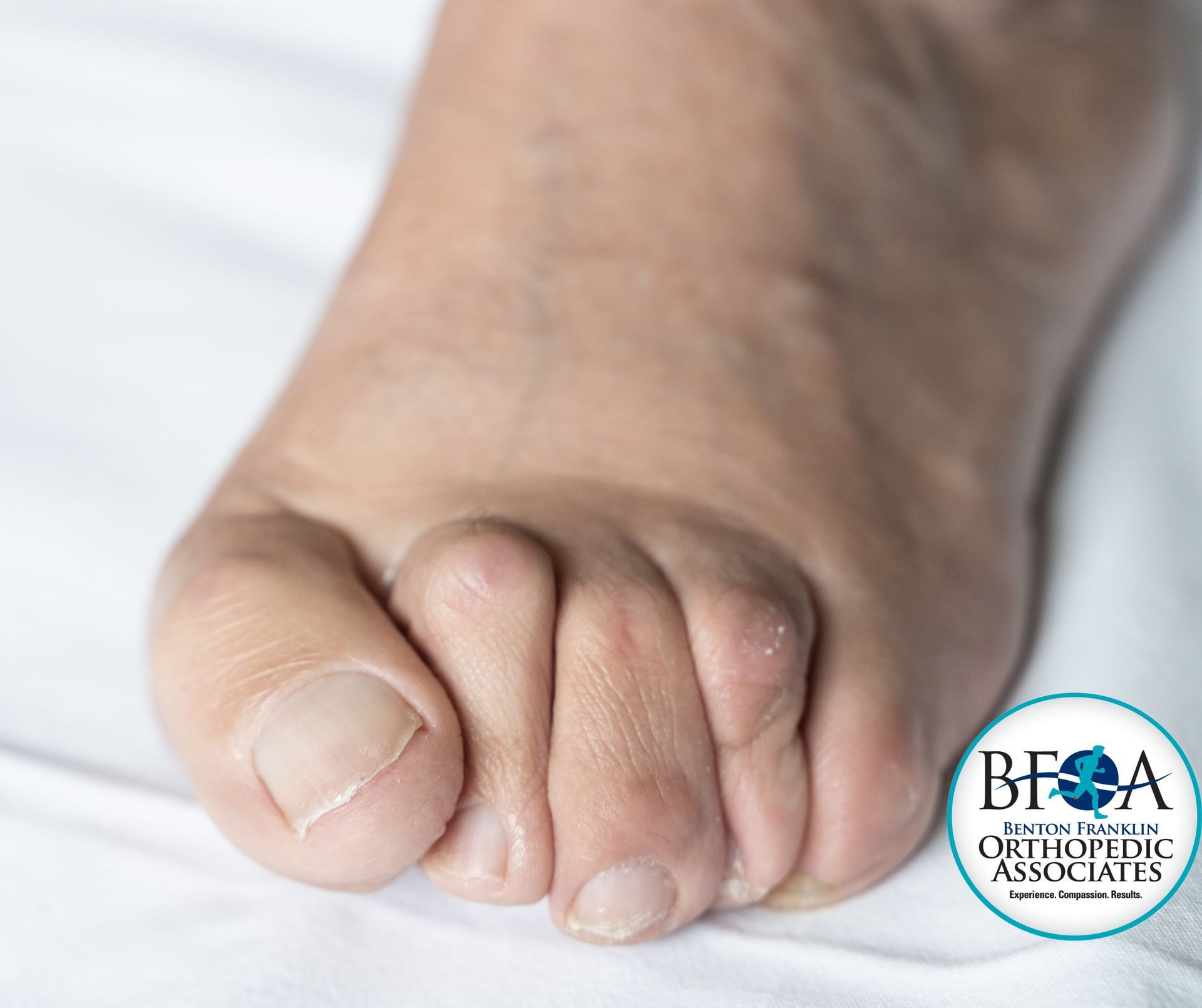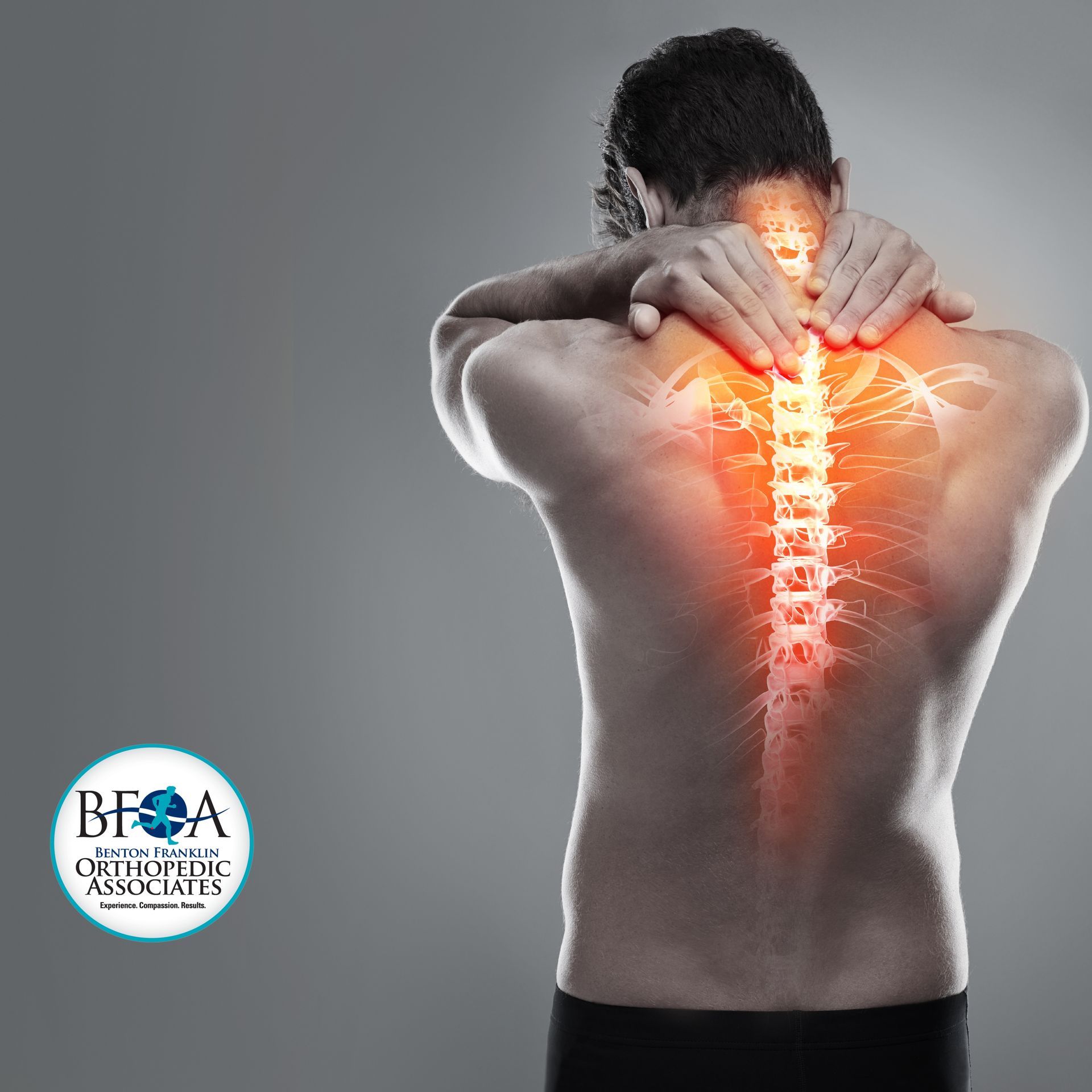Fracture Care in Kennewick, WA
Fracture Care in Kennewick, WA

Fracture Care at Benton Franklin Orthopedic Associates
Fractures occur every day among people of all ages. In most cases, bones naturally heal on their own with little or no medical intervention. However, some breaks require ongoing fracture care and oversight from an orthopedist. Whether a patient has stress fractures caused by overuse or multiple breaks from a car accident, an orthopedic surgeon can use various techniques to restore broken bones as close to their original condition as possible.
What is a Bone Fracture?
A bone fracture is a medical condition in which a bone is cracked or broken. It is a break in the continuity of the bone. While many fractures are the result of high-force impact or stress, bone fractures can also occur because of certain medical conditions that weaken the bones, such as osteoporosis.
A fracture may be complete or partial and is commonly caused by trauma due to a fall, motor vehicle accident, or sports injury. Thinning of the bone due to osteoporosis in the elderly can also cause bones to break easily. Overuse injuries are a common cause of stress fractures in athletes.
Types of Fractures
- Simple Fracture: The fractured pieces of bone are well aligned and stable.
- Unstable Fracture: The fragments of the broken bone are misaligned and displaced.
- Open (Compound) Fracture: A severe fracture in which the broken bones protrude through the skin. This type of fracture is more prone to infection and requires immediate medical attention.
- Greenstick Fracture: A fracture unique to children, where one side of the bone is broken while the other is bent.
Frequently Asked Questions
Am I a candidate for fracture care?
You may be a candidate for fracture care if you have suffered a physical trauma resulting in chronic pain, swelling, or bruising. In some cases, breaks are so severe that they cause visible deformations. In other cases, fractures cause few or no symptoms, making them especially difficult for the average person to detect. See your orthopedist if you think you may have suffered a fracture or break.
What should I expect during fracture care?
Fracture care varies from patient to patient depending on the extent of the break. Your doctor will X-ray your affected bone to determine the necessary course of treatment to facilitate healing. If you have a small hairline fracture, you may need no treatment aside from a little rest. On the other hand, a bone that has broken in multiple areas may need to be set or surgically repaired using internal rods and pins or external stabilization methods. Many fractures also require the use of a cast or sling to immobilize the bone and prevent additional damage. In some cases, physical therapy is necessary to regain full use of the affected bone and the connective tissues near it.
What types of changes will I need to make to my lifestyle?
Your body will need time to heal and repair your fracture. Depending on the nature of your bone fracture, this could take just a few weeks or many months. Your doctor will provide you with instructions for avoiding certain physical activities during this time. If you had surgery to repair one or more bone fractures, you may be prescribed medications for use in the days or weeks immediately following treatment.

Recovery
Fractures take several weeks to several months to heal, depending on the extent of the injury and how well you follow your doctor's advice. Pain usually stops long before the fracture is solid enough to handle the stresses of normal activity. Even after your cast or brace is removed, you may need to continue limiting your movement until the bone is solid enough for normal activity.
During your recovery you will likely lose muscle strength and range of motion in the injured area. Specific exercises will help you restore normal muscle strength, joint motion, and flexibility.
At Benton Franklin Orthopedic Associates, we are dedicated to providing comprehensive fracture care to help our patients recover and return to their daily activities. If you suspect you have a fracture or need specialized care for a bone injury, contact us at 509-586-2828 to schedule an appointment with one of our experienced orthopedic surgeons.











